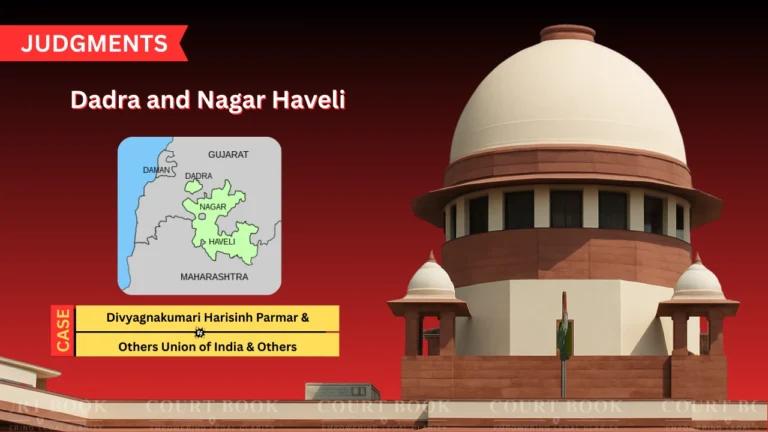In a judgment that closes a 50-year dispute, the Supreme Court has ruled that descendants of Portuguese-era landholders in Dadra and Nagar Haveli cannot reclaim properties taken back by the local administration in 1974. The bench led by Justice Surya Kant upheld the Bombay High Court’s decision and dismissed the appeals of Divyagnakumari Harisinh Parmar and others.
Background
The contested parcels were originally granted between 1923 and 1930 under Portuguese law, known as “Alvaras,” which required the grantees to cultivate the land. After Dadra and Nagar Haveli joined India in 1961, officials alleged the plots remained mostly barren and ordered the grants cancelled. Trial and first appellate courts sided with the heirs, citing decades of government inaction and implied waiver. But in 2005 the Bombay High Court reversed those findings.
Read also:- Delhi High Court Upholds Divorce Citing Wife's Refusal of Marital Relations and Parental Alienation
Court’s Observations
“The record shows no reliable proof that cultivation ever met the mandatory benchmarks,” the bench observed, stressing that the Portuguese regulations themselves allowed cancellation “without any independent proceeding” if cultivation targets were not met. The judges rejected fresh arguments raised for the first time in the Supreme Court-such as reliance on a 1917 Portuguese decree-as “belated and impermissible.”
The Court also dismissed claims that the administration’s long silence created a legal waiver. “Mandatory conditions rooted in public interest cannot be waived by mere inaction,” it noted, citing earlier precedents.
On the allegation that the Collector acted just one day before the 1971 Land Reforms Regulation took effect, the bench said the timing “does not vitiate an otherwise lawful order,” pointing to a saving clause that protected ongoing proceedings.
Decision
Holding that the Dadra and Nagar Haveli administration acted within its powers under the Portuguese-era “Organizacao Agraria,” the Supreme Court affirmed the High Court’s ruling and dismissed all appeals. The 1974 rescission of the land grants, it concluded, “remains valid and enforceable,” ending a legal battle that has stretched across generations.
Case: Divyagnakumari Harisinh Parmar & Others v. Union of India & Others
Citation: 2025 INSC 1145
Judgment Date: September 2025














